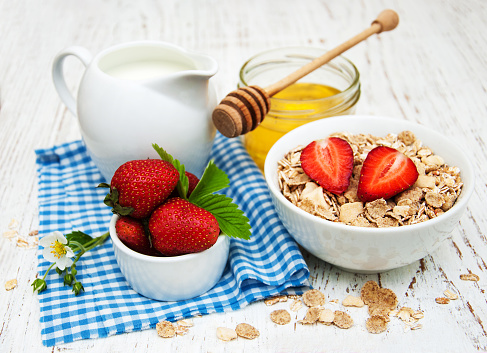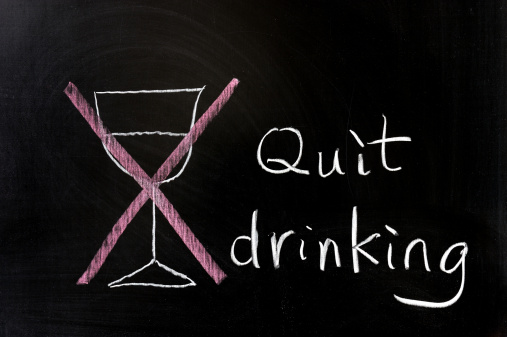 Peptic ulcers are tender, open sores that can develop on the lining of the stomach, small intestine, and the esophagus—they affects an average of four to five million Americans every year and account for about 10% of all medical costs for digestive disorders.
Peptic ulcers are tender, open sores that can develop on the lining of the stomach, small intestine, and the esophagus—they affects an average of four to five million Americans every year and account for about 10% of all medical costs for digestive disorders.
Over the past 20 years, studies have concluded that ulcers develop in response to several different factors, including bacterial infections, the use of specific medications, as well as lifestyle and dietary factors.
These new discoveries have paved the way for changes in diagnostic treatments and strategies that prove successful within weeks of the diagnosis.
Symptoms and Causes of Ulcers
 The primary symptom of ulcers and peptic ulcer disease is pain. A painful, burning sensation can be felt throughout the top of the sternum, seeping all the way to the navel. The time frame for the pain can fluctuate—it could last for as little as a few minutes or for as long as several hours.
The primary symptom of ulcers and peptic ulcer disease is pain. A painful, burning sensation can be felt throughout the top of the sternum, seeping all the way to the navel. The time frame for the pain can fluctuate—it could last for as little as a few minutes or for as long as several hours.
Most ulcers are caused by the bacterium Helicobacter pylori (H. pylori), a gastrointestinal infection that can cause both peptic ulcers and stomach cancer. H. pylori affects about 20% of people younger than 30 years old and 50% of people over the age of 60.Researchers are unsure how H. pylori can spread from one person to the other, but they do believe that it can be transmitted through food, water, and close contact with others. A 2003 study published in the Journal of the American College of Nutrition suggests that H. pylori is more likely to be found in individuals with low blood levels of vitamin C. Study researchers recommended increased vitamin C consumption.Aside from H. pylori, other causes of ulcers include excess digestive acids that will damage the lining of the digestive tract, long-term and constant use of anti-inflammatory drugs, as well as unmanaged stress. Stress causes a change in the immune system, blood flow, and acid secretion—these changes can aggravate ulcer symptoms and impede on the healing process.
An ulcer can also be aggravated by excess stomach acid, which typically occurs during the night when your stomach is empty from food and beverages. The good news is you can reduce the pain by consuming foods that will neutralize the stomach acid.
Recommended Foods/Tips to Treat Ulcers
1. High soluble-fiber foods
An article conducted by researchers at the Harvard School of Public Health and published in the American Journal of Epidemiology reported that men who consume high amounts of soluble fiber reduced the risk of developing ulcers by 60%.
2. Foods high in antioxidants
Fruits and vegetables contain high antioxidants, including flavonoids. Antioxidants can help destroy harmful molecules that damage DNA cells. Flavonoids can reduce the growth of bacteria that can cause gastric ulcers, according to researchers at the University of Maryland Medical Center.
3. Probiotic foods
Probiotics have live bacteria that can help reduce the amount of harmful bacteria present in the intestine. Fifty percent of all Americans over the age of 50 carry H. pylori bacteria in their gastrointestinal systems. From that number, only ten to 11 percent develop ulcers. In a 2007 Swiss study published in The Journal of Nutrition, researchers discovered that probiotic foods reduce the gastric irritation and can improve the healing process if consumed with antibiotics.
4. Whole grains
Whole grain foods generally contain vitamin B, magnesium, and iron—all of which will help with the healing process.
5. Low-fat food
High-fat foods can lead to discomfort and cause the healing process to slow down—it’s best to stick with low-fat foods.
6. Teas
Consume chamomile or peppermint tea— it can soothe the lining of the gastrointestinal tract.
7. Consume ulcer-friendly foods
These include wheat breads, cereal, pasta, brown rice, fish, beans, eggs, nuts, and olive oil.
Related Articles: Diet for Gastritis: Foods to Eat and Avoid
Foods That Irritate Ulcers
Below are some of the foods that can trigger ulcers:
- Whole milk and chocolate milk
- Alcoholic drinks
- Orange and grapefruit juice
- Black and red pepper
- Garlic powder
- Chili powder
- Dairy foods made from whole milk or cream
- Onions and garlic
- Tomato products
Creating an ulcer-friendly diet can be challenging, so make sure to consult your doctor, a dietitian, or a nutritionist if you have any questions, or if you need help putting together a personalized ulcer-friendly diet.
Sources:
“Diet for Ulcers and Gastritis,” Drugs.com; http://www.drugs.com/cg/diet-for-ulcers-and-gastritis.html, last accessed July 13, 2015.
“Peptic Ulcer Disease,” DrWeil.com; http://www.drweil.com/drw/u/ART03201/Ulcers-Peptic-Ulcer-Disease-PUD.html, last accessed July 13, 2015.
Perkins, S., “Ulcer Friendly Foods,” Healthy Eating web site; http://healthyeating.sfgate.com/ulcer-friendly-foods-3909.html, last accessed July 13, 2015.
Corleone, J., “Foods That Will Not Irritate Gastric Ulcers,” Livestrong.com, May 18, 2014; http://www.livestrong.com/article/77521-foods-not-irritate-gastric-ulcers/.
Chandler, S., “What to Eat & Not to Eat When You Have an Ulcer,” Livestrong.com, December 18, 2013; http://www.livestrong.com/article/347146-what-to-eat-not-to-eat-when-you-have-an-ulcer/.
